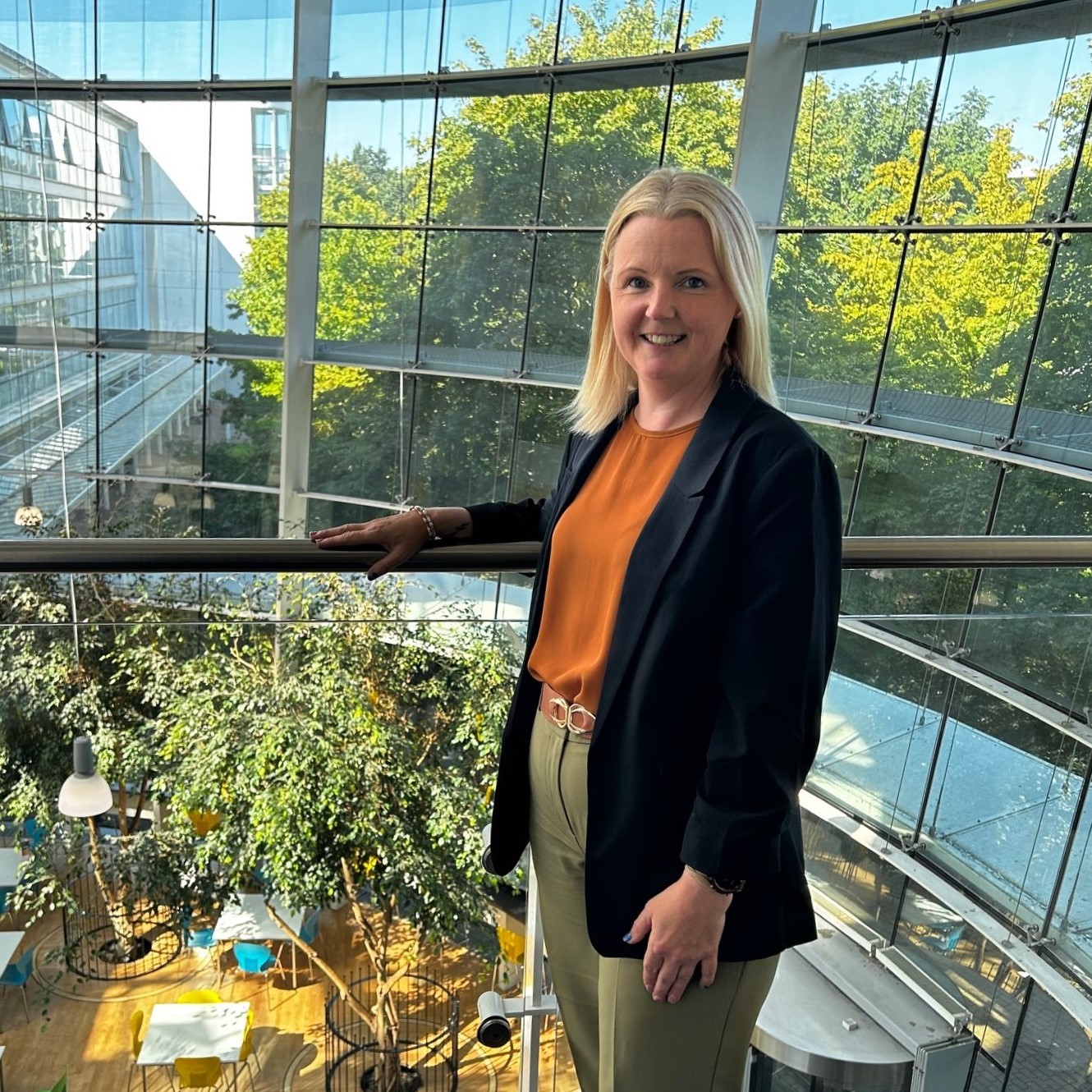
From customer to supplier
I used to be an equipment maintainer in the Royal Navy and now I’m an engineer in the Ships domain at DE&S. For me it’s been a natural move, because I provide engineering oversight for the same equipment I used to work with as part of the Forces – I used to be the one asking DE&S for Certificates of Clearance for Use (CCUs), and now I’m the one helping to provide them! Now I’m on this side of it, I can see how much work and how many approvals are required so it’s been really interesting to gain that new perspective.
A day in the life
In terms of my hours, I work flexibly so I can fit work around childcare. I wake up early as I have a young daughter and start work between 6:30 and 7:00. That’s just easier for me and I can get a lot done before other people start their working day. And any time I work over my contracted hours I can build up to take back later.
I manage one engineer on my team, and we have a morning call to plan what we’ve got going on. No day is ever exactly the same here! A lot of my role involves writing and reviewing CCUs, as well as safety, security and environmental case reports. It’s a very desk-based role but personally I really enjoy that.
“Moving to DE&S from the Royal Navy has been a natural move – now I provide engineering oversight for the same equipment I used to work with.”
– Maggie, DE&S Senior Engineering Manager
Discovering the Military Transition Scheme
I was in the Navy for 24-and-a-half years as a Petty Officer Weapons Engineer, and my background is radars, sensors, munitions, as well as communications information systems and other IT aspects you might find onboard a ship.
On leaving the Forces, I wanted to go back to my roots of when I first joined the military, focusing on radars and sensors. I saw an advert for the DE&S Military Transition Scheme, which was shared through our internal-facing app for Navy personnel, MyNavy. A role working on navigation systems, it had my name all over it!
The Military Transition Scheme, or MTS, provides a 23-month contract that gives you that step in the door when you leave the military. You submit your CV, but you don’t have to undergo a traditional interview process. Instead, you have an informal discussion with the engineering team about your skills and experience and where you could fit in. During the 23 months, you formally apply and interview for a permanent role within DE&S when they Have a Level 3 external campaign running which I know the next one is Jan 2024. The scheme gives you that support and experience to get hands-on experience in a civilian role, as well as CV-writing and interview training. I know other ex-service people who have joined through the MTS too, and we catch-up regularly to see how we’re all getting on.
My military experience has been really useful here. Having that existing knowledge of the equipment and relevant contacts in other organisations, I feel like I’ve really been able to add value. One of my focuses since joining has been on optimising our use of our existing suppliers to reduce our dependence on contractors, which – at the end of the day – has resulted in a cost-saving for our organisation and, in turn, the taxpayer.
“My military experience is really useful here. Having that existing knowledge of the equipment and relevant contacts in other organisations, I feel like I’ve really been able to add value.”
Navigating into a civilian career
One of the most difficult aspects I found in transferring out of the Navy was building out my CV. Everything we did was team effort, so bigging yourself up and identifying those tangible results that you’ve delivered, to put into a civilian CV, can be really challenging.
One of the key benefits I’ve seen, however, is the level of freedom you experience when you leave. Military life is very often based on taking orders; at DE&S I get to have autonomy in my decisions and steering my own work. Sometimes you may be asked for too much, and you can have the independence and support to say ‘no’ to things. That was really strange at first!
Joining the DE&S community
When I first joined the organisation, I discovered there was a wide range of staff networks I could be part of. I joined a few and it’s been a great way to expand my network. I’m part of the Volunteering Network, the Parents Network, and also part of a STEM Outreach group.
I’m a registered STEM Ambassador, which involves visiting schools and colleges to encourage students to consider careers in science, technology, engineering and maths. We know that female engineers are in short supply, and I particularly want to encourage more young women to consider this field.
We recently had a Lego expert come to site and they ran a workshop with our STEM ambassadors to teach us how to build Lego EV3 kits. That’s a programmable robotics kit, based on Lego blocks that includes computerised bricks, modular centres, motors, and other parts that can be used to create mechanical systems. We were able to build the robots, experiment, and race them, so that we could then take them out into schools, show students how to build them and get them excited about the cool things technology can do.
At DE&S, you can actually get up to six day’s paid special leave to volunteer, and through the Volunteering Network I do food collections and get involved in community activities. I’ve just started volunteering for the Trevi charity. It’s an award-winning women’s charity based in Devon, covering the whole of the Southwest. Its mission is to provide safe and nurturing spaces where women in recovery can heal, grow and thrive.
Outside of volunteering, I’m currently working towards Incorporated Engineer (IEng) status through the Institute of Engineering and Technology (IET), which is supported and funded by DE&S.
“I’m a registered STEM Ambassador, which involves visiting schools and colleges to encourage students to consider careers in science, technology, engineering and maths. We know that female engineers are in short supply, and I particularly want to encourage more young women to consider this field.”
My top tips for service leavers
My advice for service leavers would be to check-out the opportunities at DE&S, whether that’s a permanent role or via the MTS. You can find a role that’s a good match for your existing skills and experience. There are jobs around the country, and support for working parents, too. If you have a unique situation, speak up and discuss it with your line manager or the Parents Network, there’s always support available.





